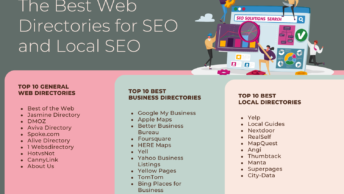Almost every transaction starts online. The definition of marketing that I ascribe to is, “any communication that leads to a sale.” These two facts make your online reputation crucially important.
Whether you know what comes up when you search your name, business, or products or not, you need to know how to manage your online reputation. First of all, Google the aforementioned queries. Scan the first page. If you aren’t on the first page or if you see something unsavory, you need to spend some time working to improve your online reputation.
As a marketing consultant, I find myself reminding my clients every day that marketing isn’t about highlighting your sales and promotions. It is about positioning yourself and your company as a subject matter expert, as a credible, authoritative resource for whatever it is you do. Keeping the most relevant and useful information first in search is essential.
Because almost anyone can write almost anything online it is possible that someone has said something negative about your products or services. Websites and web applications have made this easier than ever. Of course, I’m all for giving power to the consumer. And I know how important word of mouth marketing is, but unfortunately there will always be that one company that resorts to bashing their competitors or that one client who couldn’t be satisfied and is now intent upon ruining your reputation.
Manage your Reputation, Claim your Name
Use usernamecheck.com or namechk.com to see if your brand name is available as a username online. (If you’re looking for a domain name or even a company name you may want to check these sites first.) Consistently employ the use of the same username across the web’s most common networks. Even if you don’t plan on investing time on a network, it may be worthwhile to claim your name so no one else does.
You will want to manage your accounts on the most popular networks (those most popular with your target market). If you’re not sure where to start, begin with Facebook, Twitter, LinkedIn, YouTube, and Google+ and see What are the Most Important Social Networks. Create and complete profiles on these networks. Follow my advice for making such sites work for your business.
Use tools to monitor what is being said about you online. Sign up for Google Alerts, do regular searches on major search engines, and consider adding social media monitoring applications that will do this for you. Google Alerts can be set to email each time a new mention is made; otherwise be sure to check weekly. Learn more about DIY Social Media Marketing.
Preemptive Reputation Management
Think twice before you post anything online. Be cautious about sharing personal or potentially embarrassing information. Remember that although it may seem appropriate in context, search engines may retrieve such information without context at a much later time.
What to Do With Negative Comments
If such comments show up on your site / blog / networks, you’ll want to remove them where appropriate (at times it may be even wiser to make a reply). If you don’t have control of the site where such content is placed, you could try sending a removal request to the site’s webmaster. You may want to use the Google URL removal tool.
Creating new content will often be enough to push negative remarks far off the first page. Be sure to earn, ask for, and publish testimonials in your favor as well. If you create multiple channels as online assets for your brand and publish large quantities of quality content, your brand will have the reputation you desire.
Do you have more tips on how to manage your online reputation? Please comment below.
If you found this article helpful, please share it on your favorite social networks.







